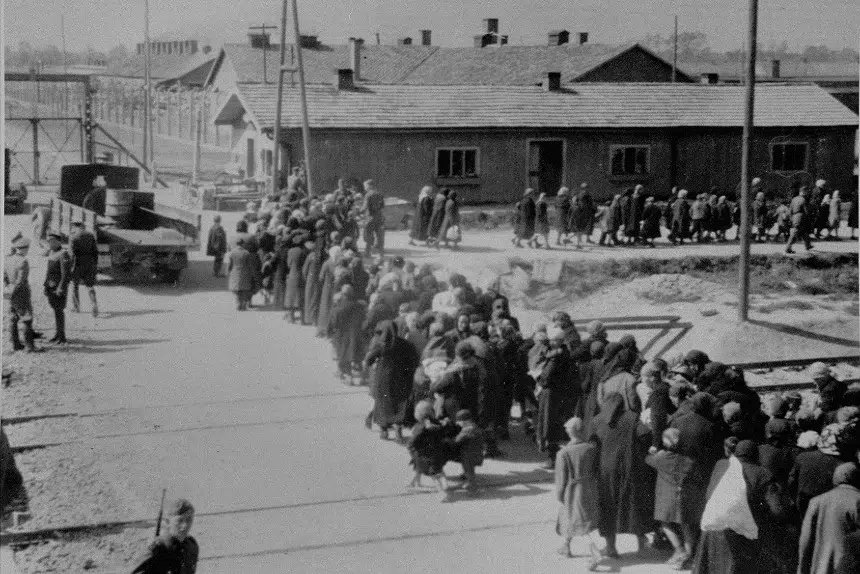One of history’s worst atrocities is being remembered Wednesday.
It’s International Holocaust Remembrance Day, as well as the 76th anniversary of the liberation of the Auschwitz concentration camp in Poland.
Millions of Jews were slaughtered, tortured and experimented on in Adolf Hitler’s Nazi death camps. Other groups, including people with disabilities, Quakers, Jehovah Witnesses and more were also targeted.
A local Jewish leader is offering perspective on the importance of the occasion. Rabbi Jeremy Parnes from Beth Jacob Synagogue in Regina said in an interview that history’s darkest moments should always be remembered.
“Clearly, this is a significant and mournful period for us as Jews. Knowing the history of that, knowing what happened, knowing that there were those who would at least try to diminish it … the truth is, as much as it is our history, it is indicative of the possibility that it can happen to anyone, as it has in one form or another happened to other peoples and other cultures,” he explained.
“It is partly to do with healing, but much more to do with never forgetting what humanity is capable of when they choose to somehow pick out a singular group, especially a minority group, and perform such atrocities.”
Parnes believes it’s getting more and more important to spread awareness and education. That’s because, 76 years later, many survivors of the Nazi death camps are ageing or dead.
“As we lose the presence of those survivors who are so old and others who have already passed … the memory, the importance of what it meant … the visceral reality of such atrocities that one human can perpetrate on another, there’s a fear that it can lose its impact in the retelling,” he said.
“It would be such a sad occasion if it has to be re-experienced in order for people to realize that. Having said that, we know that there are places around the world where it does happen, on some kind of a scale … So we see the importance of keeping it within our present memory and passing it on accordingly.”
Parnes said that Jan. 27 is a significant date, but it’s more important that you make a point to remember, no matter the day.
Because of the COVID-19 pandemic, his synagogue hasn’t been able to put together a large event like it usually would. They’re working on some kind of virtual event.
“It may take us time; we may use other dates. We don’t think it should be limited as long as we take the time to commemorate,” he said.
Parnes believes education on the Holocaust needs to be firmly rooted in the modern age to reach as many people as possible.
“These things are always possible and (we need to) do something to not let that happen,” he said. “Of course, we need to bring in technology that deals with internet issues. (We need to remember) racism, anti-Semitism and so on, and the things that can lead to those atrocities that way as well.”







